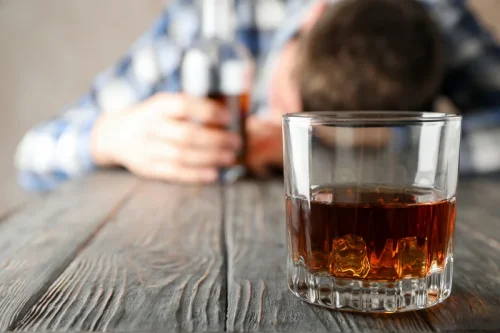
Behavioral treatments—also known as alcohol counseling, or talk therapy, and provided by licensed therapists—are aimed at changing drinking behavior. Severity is based on the number of criteria a person meets based on their symptoms—mild (2–3 criteria), moderate (4–5 criteria), or severe (6 or more criteria). However, since alcohol affects people in different ways, recognizing AUD in yourself or in others can be subjective and challenging.
- Alcohol dependence and alcohol abuse were two designations previously recognized in the DSM-IV.
- Environmental factors, such as lifestyle and role models, are also important influences.
- Inpatient detoxification is generally more effective than outpatient for initial sobriety and safety.
- Alcohol abuse can come with many health complications and can lead to AUD if left untreated.
- In 2019, 5.6% of people ages 18 or older (14.1 million adults) were living with the condition, according to the National Institute on Alcohol Abuse and Alcoholism (NIAAA).
- (148 mL) of wine, the American Psychological Association (APA) notes.
Substance Use and Co-Occurring Mental Disorders
- Like other compulsions, sex addiction can lead a person into situations that can threaten their relationships, career, and physical, mental, and sexual health.
- People can survive alcohol poisoning if they receive appropriate treatment.
- Use these resources to find help for yourself, a friend, or a family member.
- Too much alcohol affects your speech, muscle coordination and vital centers of your brain.
- While these factors alone do not mean your condition classifies as alcohol addiction, it can be a contributing factor if proper treatment is not sought.
We have new and better treatment options today because of what clinical trials uncovered years ago. Talk to your health care provider about clinical trials, their benefits and risks, and whether one is right for you. Research has found several behavioral therapies that have promise https://ecosoberhouse.com/ for treating individuals with co-occurring substance use and mental disorders. Health care providers may recommend behavioral therapies alone or in combination with medications. A rare but very serious syndrome called delirium tremens can occur during alcohol withdrawal.
Alcoholics anonymous and other support groups
- In fact, an estimated 40 million adults in America drinktoo much, and most — 90 percent — are not alcoholics.
- Males, college students, and people going through serious life events or trauma are more likely to experience AUD.
- Heavy drinking in conjunction with other behaviors can also signala problem.
- The table below shows common symptoms at each level of alcohol intoxication.
- Traumatic childhood experiences, such as neglect or abuse, can also be a contributing factor.
In some people, the initial reaction may feel like an increase in energy. But as you continue to drink, you become drowsy and have less control over your actions. Because denial is common, you may feel like you don’t have a problem with drinking. You might not recognize how much you drink or how many problems in your life are related to alcohol use. Listen to relatives, friends or co-workers when they ask you to examine your drinking habits or to seek help. Consider talking with someone who has had a problem with drinking but has stopped.
How can I find a clinical trial for substance use and co-occurring mental disorders?
The staff may administer tapering amounts of the substance or its medical alternative to wean a person off and lessen the effects of withdrawal. Updates about mental health topics, including NIMH news, upcoming events, mental disorders, funding opportunities, and research. By Sarah Bence, OTR/LBence is an occupational therapist with a range of work experience symptoms of alcohol dependence in mental healthcare settings. Millions of people join support groups to help stop drinking and stay stopped. Studies show support groups play an instrumental role in helping people develop healthy social networks that result in continued sobriety. Remember you are facing a difficult challenge during alcohol withdrawal, but you are not alone.
But genetics on their own don’t control whether a person has an alcohol use disorder. Environmental factors, such as lifestyle and role models, are also important influences. More resources for a variety of healthcare professionals can be found in the Additional Links for Patient Care. Although the exact cause of alcohol use disorder is unknown, there are certain factors that may increase your risk for developing this disease. People with alcohol use disorder will continue to drink even when drinking causes negative consequences, like losing a job or destroying relationships with people they love. They may know that their alcohol use negatively affects their lives, but it’s often not enough to make them stop drinking.

Learn more about the short- and long-term effects of alcohol consumption here. When a person drinks alcohol, ethanol passes through the digestive system and enters the bloodstream through the linings of the stomach and intestines. If an individual drinks alcohol on an empty stomach, their BAC usually peaks within 30–90 minutes. After World War I, the Army and Veterans Administration broadened the nomenclature to include disorders affecting veterans. AUD involves the continued use of alcohol despite the adverse effects it may have on a person’s life.
Health Problems Caused By Alcohol Dependence

For more information on behavioral treatments and medications for SUDs, visit NIDA’s Drug Facts and Treatment webpages. For more information about treatment for mental disorders, visit NIMH’s Health Topics webpages. Healthcare providers typically prescribe short-term medications to relieve the symptoms of mild to moderate alcohol withdrawal. Alcohol withdrawal (alcohol withdrawal syndrome) is a range of symptoms that can happen if you stop or significantly reduce alcohol intake after long-term use. Alcohol withdrawal causes a range of symptoms when a person with alcohol use disorder stops or significantly decreases their alcohol intake. The symptoms can range from mild to severe, with the most severe being life-threatening.
Drinking, despite its effects on mental or physical health

